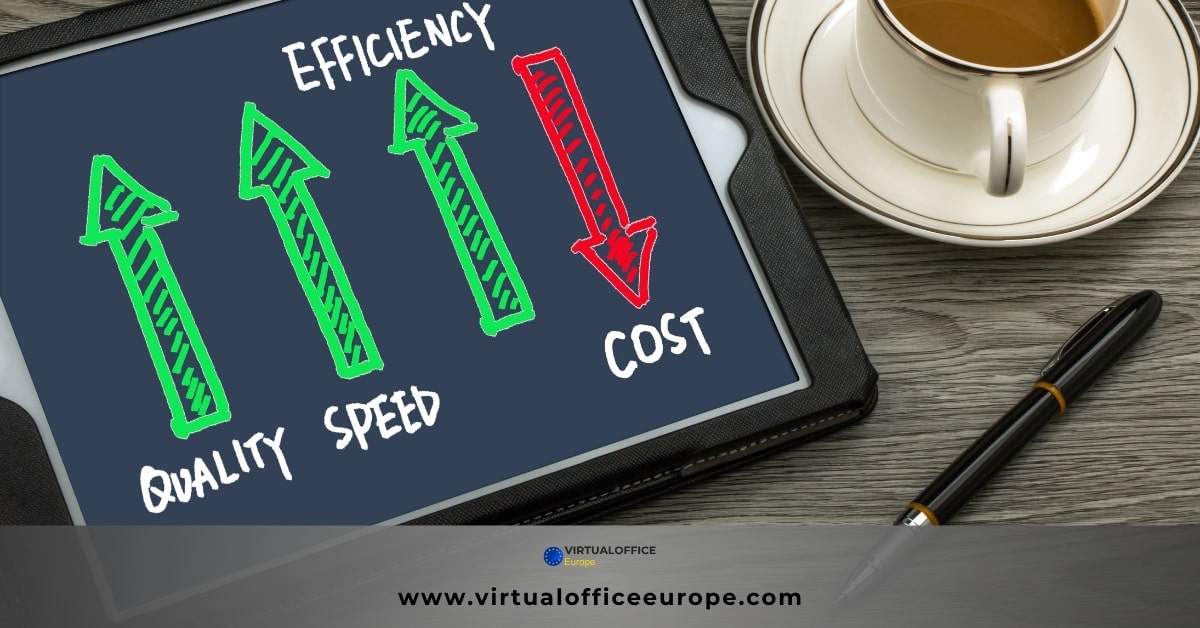Protecting your virtual office is more important than ever in an increasingly digital environment. Understanding and putting into practice strong cybersecurity measures can help organizations operating throughout Europe maintain operational integrity and safeguard critical data. The following article will walk you through the key tactics to protect your virtual workplace from online attacks, with an emphasis on digital security.
Europe’s Digital Environment
Europe’s digital transformation has grown faster over the last ten years, which has increased the number of businesses choosing remote work policies and virtual offices. This change has increased the attack surface accessible cybercriminals. As Europe’s businesses use digital tools and platforms, they must be mindful of cybersecurity to protect themselves from ransomware, data breaches, and other dangerous threats.
Key Cybersecurity Threats in the Digital Era
The first step in defense for your virtual workplace is to recognize possible threats. Some common risks to be aware of when using the internet are as follows:
1. Phishing Attacks
Still one of the most common risks is phishing. Cybercriminals fool employees into clicking on dangerous links or disclosing private information by sending them misleading emails or messages. Your whole network may be affected by these assaults.
2. Ransomware
Malicious software known as ransomware protects your files and then demands a fee to unlock them. These attacks have the potential to seriously impair company operations and cause large losses.
3. Malware
Malicious software, including as viruses, trojans, and worms, is referred to as malware. These risks possess the ability to breach your systems, steal information, or interrupt your business’s operations.
4. Data Breaches
Sensitive information is compromised when unauthorized people have access to it. Serious financial fines and harm to your company’s reputation may arise from these violations.
Best Practices for Digital Security in Your Virtual Office
1. Set up Strong Password Guidelines
Make sure that every employee has a complicated password that they change on a frequent basis. To securely store and manage passwords, think about utilizing password managers. By requesting additional verification in addition to passwords, multifactor authentication (MFA) provides an extra degree of security.
2. Inform Your Group
Plan monthly cybersecurity training sessions to instruct employees on how to recognize and respond to internet attacks. In order to stop phishing scams and other online threats, awareness is essential. Provide useful advice and materials to support your team’s awareness.
3. Guard Your Digital Channels of Communication
Make use of encrypted messaging apps to safeguard private information sent via chat rooms or email. Make sure that every electronic correspondence is safe, particularly when handling private data.
4. Update Software and Systems Frequently
Keep your operating systems, software, and apps up to date by making use of the most recent security updates. Software upgrades are necessary for maintaining digital security since weaknesses in outdated software are often exploited by cybercriminals.
5. Make a Data Backup
Develop an extensive data backup plan to guarantee that your most important information is consistently backed up and recoverable in the event of a cyberattack. To prevent data loss, store backups off-site in safe places.
6. Make Use of Antivirus Software and Firewall
Install antivirus and firewall software to add another line of protection against online attacks. Make sure your firewall is set up to prevent unwanted access and run regular virus scans on your systems.
7. Keep an eye on and address security incidents
Create a cybersecurity monitoring system to quickly identify and address any risks. Create an incident response strategy to quickly resolve security breaches and reduce damage.
Europe’s Regulatory Compliance
Along with various regional laws, European enterprises also have to live up to by the General Data Protection Regulation (GDPR). Strict rules for privacy and data protection are required under GDPR. Make sure that your digital security procedures meet with these laws in order to stay out of trouble with the law and win over your clients’ trust.
Final Thoughts on Digital Security
In the era of digitalization, keeping your virtual office in Europe secure is crucial for preserving critical data and company continuity. You can strengthen your digital environment against cyberattacks by being aware of potential risks and putting strong cybersecurity measures into place. Your virtual office may stay safe and resilient in the face of evolving digital dangers by educating your team, safeguarding communication channels, and adhering to legislation.
To protect your virtual workspace and guarantee a secure digital future for your company, continue to be proactive and watchful in your cybersecurity activities.







